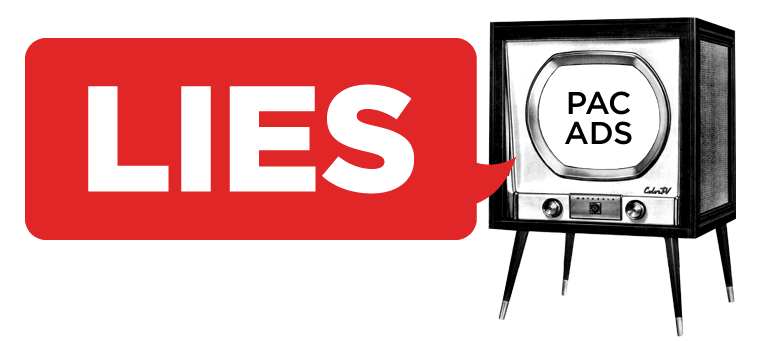
Super PACs Tell Lies, but the Media Spread Them
If you think presidential politics have gotten ugly, just wait.
With wealthy corporations and individuals spending billions of dollars to influence your vote, the real dirt is about to hit your TV screen like mud on a linen bed sheet.
According to the New York Times, which got its hands on a conservative proposal from a shadowy Super PAC, wealthy Republican strategists are working overtime on a billionaire-fueled campaign to flood the airwaves with race-laced attacks against President Obama:
The plan, which is awaiting approval, calls for running commercials linking Mr. Obama to incendiary comments by his former spiritual adviser, the Rev. Jeremiah A. Wright Jr., whose race-related sermons made him a highly charged figure in the 2008 campaign.
The money would be funneled from the pockets of Ameritrade founder and billionaire Joe Ricketts through a Super PAC called the Ending Spending Action Fund into the coffers of the local broadcast stations that would air the resulting attacks.
According to the Times, the plan even features a defensive strategy. To confront any charges of race baiting, the strategists would hire as a spokesman an “extremely literate conservative African-American” who can argue that President Obama fooled the nation into thinking he was what the proposal calls a “metrosexual, black Abe Lincoln.”
The level of disgust this news has generated in social media has been palpable. Liberal commentators are striking back with their own vile incriminations of the right-wing hacks behind this effort. Both sides are dragging American politics deeper into the muck.
The Times’ Jeff Zeleny and Jim Rutenberg write of the proposal:
[It] serves as a rare, detailed look at the birth of the sort of political sneak attack that has traditionally been hatched in the shadows and has become a staple of presidential politics. It also shows how a single individual can create his own movement and spend unlimited sums to have major influence on a presidential election in a campaign finance environment in which groups operating independently of candidates are flourishing.
Whether such ads are true or not doesn’t seem to be an issue with the writers of the Times story. The facts have taken a back seat to money and politics in this country.
And what of the local broadcast stations that air and profit from political ads? According to Kantar Media, attack ads will air hundreds of thousands of times before viewers become voters in November.
And the media outlets airing these ads are not giving viewers enough of the antidote: the kind of news and information that would allow Americans to separate fact from fiction when they step into voting booths in November.
According to a recent survey by the Columbia Journalism Review, television viewers in Pennsylvania sat through more than 28 hours of political ads related to a local congressional race. All of these aired in a seven-and-a-half week period prior to the April 24 primary.
How much news coverage did these viewers get to counter this flood of political bias? A few minutes total, says CJR, which counted less than a half-dozen news reports devoted to the corresponding race.
So while Super PACs are a big part of the problem, consider the other half of the picture: local broadcasters who are all too happy to profit from misinformation — and all too reluctant to debunk it.